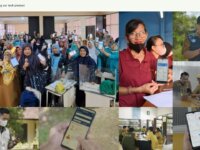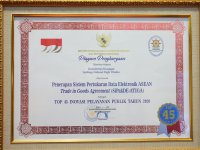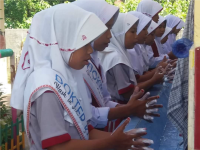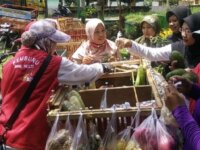Bureaucracy in Jakarta faced 3 main problems: scattered and unstandardized data, siloed systems, and unintegrated services; making public services inefficient and costly, eventually decreasing public service quality. Jakarta Capital City Government addressed the mentioned challenges through JAKI, a Super-App that integrates services by unifying Jakarta’s bureaucracies and data in one digital ecosystem that prioritises citizen participation in overcoming city problems. JAKI is a one-stop…
Case Study Library
Where innovations are collected and shared to disseminate and replicate good ideas

Innovations:
0
This website, as well as any data and map included herein, are without prejudice to the status of or sovereignty over any territory, to the delimitation of international frontiers and boundaries and to the name of any territory, city or area.
GovTech Edu works with the Indonesia MoECRT to build a technology ecosystem to create an irreversible transformation for Indonesia’s education system. It includes tech platforms made available for teachers, school principals, university students & practitioners, through products like Teacher SuperApp, Education Scorecard & University Internship Matchmaking Platform. With these, the transformation to improve student learning outcomes becomes more inclusive, data driven & impact-enabling at…
The Indonesian Government has initiated “I-Gateway” as Hub for ASEAN Trading Document, enabling electronic data exchange such as certificates of origin to ensure authenticity, reduce paper work and eliminates redundancy. I-Gateway connects both domestically among national agencies and internationally with other countries. It validates and reconciles documents efficiently, to ensure its security as well as business process simplification and harmonization, aiming to higher ease of doing…
Indonesia has a wide and complex structure of government which provides different and interconnected types of public services. In this context, public participation in reporting complaints and dissatisfaction with public services delivery nationwide plays a significant role to ensure better quality of public service delivery.
SP4N-LAPOR! has been established to become a one-stop national complaint handling management system in public services.
School age is the golden age for introducing and instilling the values of clean and healthy living behaviour (CHLB) in children. Encouraging children to adopt CHLB is a key focus of Indonesian primary schools’ activities, with the aim of reducing levels of contagious illness and increasing good nutrition. This is especially important to introduce at a young age, as many schools and homes do not have access to clean running water and lack adequate toilets and hand-washing facilities.
Case Study
SELFI (JUVENILE FILIAL SCHOOL / FORMAL EDUCATION SERVICES AT SPECIAL CLASS DEVELOPMENT INSTITUTION…

Sekolah Filial (SELFI) is a high quality formal education service for child prisoners in a special child development institution, Lembaga Pembinaan Khusus Anak (LPKA) Klas I in Palembang. This innovation is a solution to provide educational rights for all, including child prisoners in Palembang. This was a major problem in Palembang because of the high number (191) of cases reached in 2014, far above the national average of 95 cases. This innovation has been able to lead them to a better future.
In Banyuwangi of Indonesia, one of the districts in East Java, 16 pregnant women died in 2015, as well as 28 babies. The largest contributing factor was a lack of data concerning the existence and whereabouts of women with high-risk pregnancies. So, in 2016, Sempu Public Healthcare Center launched an innovative solution using female vegetable sellers on motorbikes as high risk pregnancy seekers. As a result, the number of women and babies dying during and/or shortly after childbirth fell to…
Forest fires affect many parts of Southeast Asia, resulting in extensive environmental destruction, health problems, school closures and transport cancellations. Haze Gazer is a web‐based decision support system for disaster management authorities which harnesses multiple sources of data to provide insights on haze disaster dynamics.
High transaction costs, long bureaucracy, and a weak controlling system create bad image of public services, especially in terms of forestry business. One Timber One ID (SIPUHH) is an innovation as a tool in controlling forestry business. It provides a system in which any timber traded has an ID, so its origin and legality can be identified. It promotes greater accountability on the timber industry to respect forestry law.
Case Study
MAGMA Indonesia (Multiplatform Application for Geohazard Mitigation and Assessment in Indonesia)
MAGMA Indonesia is an system that streamlines the process of geological hazard mitigation. It raises the bar on the standard of data monitoring and management for Indonesian government agencies. MAGMA digitizes relevant geological data into integrated databases, making them easier to analyze and use. Frequent readings and analytics can now be made ready in an almost-real-time manner. As a public service, MAGMA makes geological hazard mitigation and assessment available for free, anytime and…





